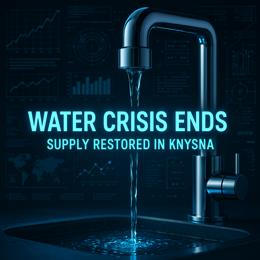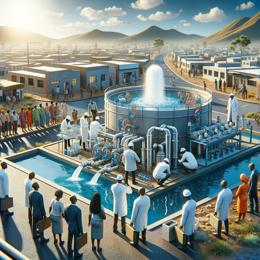Image created by AI
Crisis in the Niger Delta: A Deep Dive Into the Botched Cleanup Efforts and Corruption Allegations
The picturesque landscape of the Niger Delta in Nigeria, once rich with biodiversity, has been marred by decades of oil spills. Efforts to remediate this devastation have not only failed but also fallen victim to alleged corruption and incompetence, according to a slew of leaked files reviewed by an international news source.
In 2021, a stark image captured by satellite illustrated large swathes of barren land in a region slated for restoration. This site, located on the outskirts of Port Harcourt and listed by the United Nations Environment Programme (UNEP) for cleanup, was intended to transform back to its original verdant state. Conversely, it remained a "moonscape," unfit for agriculture, according to internal U.N. documents.
These files constitute a broader pattern of failure, revealing that the Hydrocarbon Pollution Remediation Project (Hyprep), the Nigerian cleanup agency, has fallen short of its commitments. Senior U.N. officials have labeled the agency’s efforts as a "total failure," and their damning assessment does not come lightly.
The problems begin with the selection of cleanup contractors. Hyprep, as per U.N. findings, hired firms without relevant experience—some were merely construction companies. Furthermore, these contractors were responsible for handling soil samples critical for assessing the cleanup, yet they sent these samples to inadequately equipped labs. In some instances, auditors faced physical barriers from verifying the work purportedly completed.
Adding a layer of complexity, the involvement of political powerholders in the cleanup efforts surfaced. A former Nigerian environment minister revealed that most cleanup companies are owned by politicians, hinting at deeply entrenched conflicts of interest and echoing concerns noted by U.N. officials.
These issues are not just administrative hiccoughs—they have human and environmental costs. Local communities such as the Ogboinbiri in Bayelsa have experienced recurrent oil spills, severely impacting their agrarian lifestyle.
Following a significant U.N. pollution survey in 2011, oil giants like Shell pledged substantial amounts towards the cleanup efforts. However, despite the financial influx, effective remediation has been elusive. Last year's confidential U.N. investigation underscored the troubling persistence of petroleum levels far exceeding health standards, indicating a gross mishandling of the cleanup operation.
The heart of the issue extends to the governance of Hyprep itself. Internal U.N. assessments highlight a lack of oversight and accountability, with auditors being particularly marginalized—often perceived as adversaries rather than allies in transparency.
In a noteworthy turn of events, Sharon Ikeazor, an erstwhile environment minister dedicated to reforming the cleanup operations, was briskly replaced after removing a key figure allegedly too integrated with political operatives. Her successor is reported to have resumed favoring the same entrenched interests.
As of last year, UNEP officially ended its advisory role, citing the conclusion of its consultancy period. Insiders, however, suggest U.N.'s withdrawal was prompted by ongoing frustration with rampant mismanagement and corruption.
This extensive mismanagement calls for a robust response to rectify the legacy of environmental degradation in the Niger Delta and realign the cleanup operations with transparency, expertise, and the urgent needs of the local communities directly impacted by decades of pollution.










